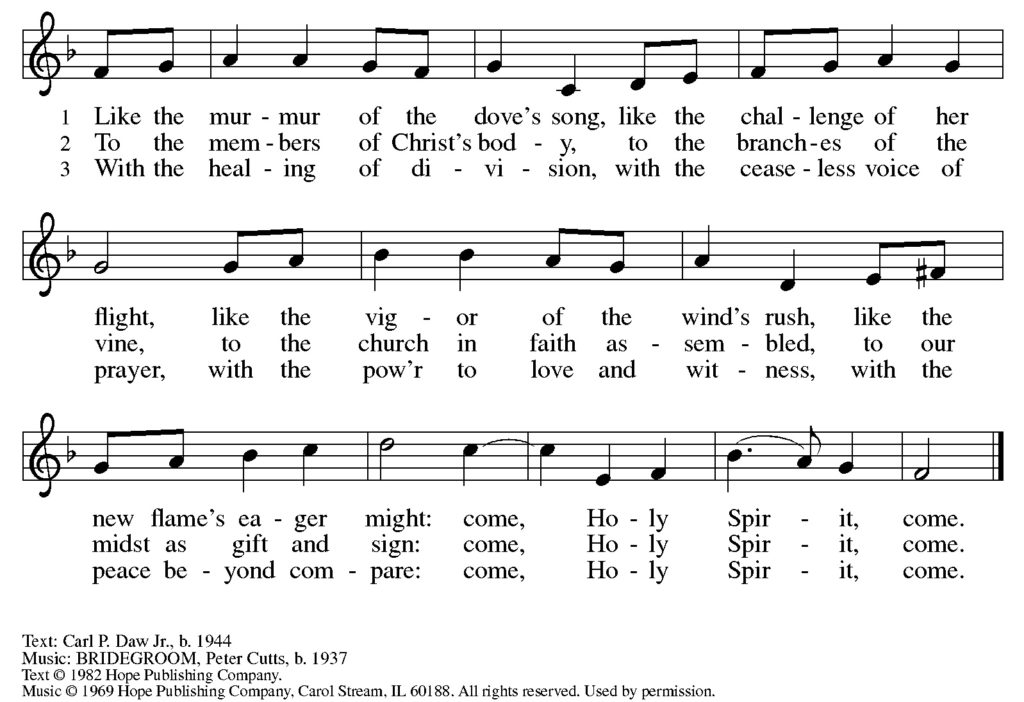Today’s blog post is taken from the Worship FAQ What is the Meaning and Use of Liturgical Colors?. For more resources, follow the link to the original FAQ.

In the Christian tradition, colors are used for vestments and paraments, but a unified system of colors developed only gradually and haphazardly until and through the Middle Ages. Today, the Evangelical Lutheran Church in America provides a system of colors for use by its congregations; for the most part, the same system is also used by Roman and Anglican churches, at least in the United States; and by many churches around the world, including the Evangelical Lutheran Church in Canada.
Many of the colors associated with the seasons are closely linked with the experience of Christians in the Northern hemisphere. Christians in the Southern hemisphere will experience the church year differently in that context, perhaps calling forth different color associations. It is also helpful to realize that colors have different associations across the globe, just as they have had different associations over the course of the church’s history. For example, white is the color North American and European Christians typically associate with Christmas and Easter, the color white signifying the purity of Christ, light or joy. In many Eastern cultures, however, white connotes mourning. Red, associated with energy, blood or fire among other things in Western culture, is the color associated with purity in India.
The colors serve to adorn the worship space, and to call attention to the nature of the season or festival being celebrated.
A brief summary of color usage, according to the church year:
Advent: Blue is associated with Advent, suggesting hope. This association originated in Scandinavia, probably because purple dye was too expensive for churches to use. Some assemblies use purple in Advent, a color associated with royalty as the church awaits the newborn king. (note, this is a different meaning than when it is used in Lent; see below).
Christmas: White, calling to mind the purity of the newborn Christ, and to our light and joy in him. Some also use Gold.
Epiphany of Our Lord: White (see Christmas).
Baptism of Our Lord: White (see Christmas).
Time after Epiphany: Green is used for its symbolism of our growth in Christ. Green, in a sense, is a “neutral color,” used when more festive or more somber color is not appointed.
Transfiguration of Our Lord: White (see Christmas).
Ash Wednesday: Purple is the preferred color as this is the first day of Lent. Historically, black has also been used on this day, since it is the color of the ashes to which we will all return.
Lent: Purple is typically associated with Lent, suggesting repentance and solemnity.
Sunday of the Passion: Scarlet is the preferred color of this first day of Holy Week, as it suggests the deep color of blood. (Scarlet is to be distinguished from the brighter color of red, which is appointed for the Day of Pentecost, martyrs’ days, and certain church celebrations). If a parish does not have scarlet vestments, purple may be used.
Days of Holy Week: Scarlet or purple may be used for Monday, Tuesday, and Wednesday of Holy Week.
Maundy Thursday: For this fourth day of Holy Week, celebrated as the institution of the Lord’s Supper, scarlet or white is used.
Good Friday: No vestments or paraments are used on this day, after the stripping of the altar on Maundy Thursday night.
Vigil of Easter: White or Gold suggests of joy in the Resurrection is used on this night. Easter Day: Gold or white is suggested for this day. The gold color symbolizes that this day is the “queen of feasts,” unique in the entire church year.
Sundays of Easter: White suggests the joy of the resurrection.
Day of Pentecost: Red as the color of fire is used on this day when we remember the tongues of fire descended on the crowd in Jerusalem. In contrast to the color of scarlet, Pentecost’s red is a bright color.
The Holy Trinity: White is suggested, the expression of joy in the mystery of the Triune God.
Time after Pentecost: Green is used, to indicate our growth in faith as we follow the teachings and ministry of Christ. Some assemblies use differing shades of green throughout the Sundays after Pentecost, a lighter green in summer and a darker green in fall.
Christ the King: The final day of the church year uses white, a festive color suggesting light, joy, and the celebration of our Lord.
Lesser festivals and commemorations are white, unless a martyr is celebrated, in which case bright red is suggested.

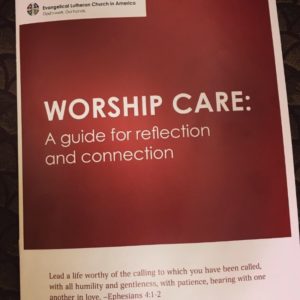 Here is a little more information about what Worship Care is and how you can use it in your context.
Here is a little more information about what Worship Care is and how you can use it in your context.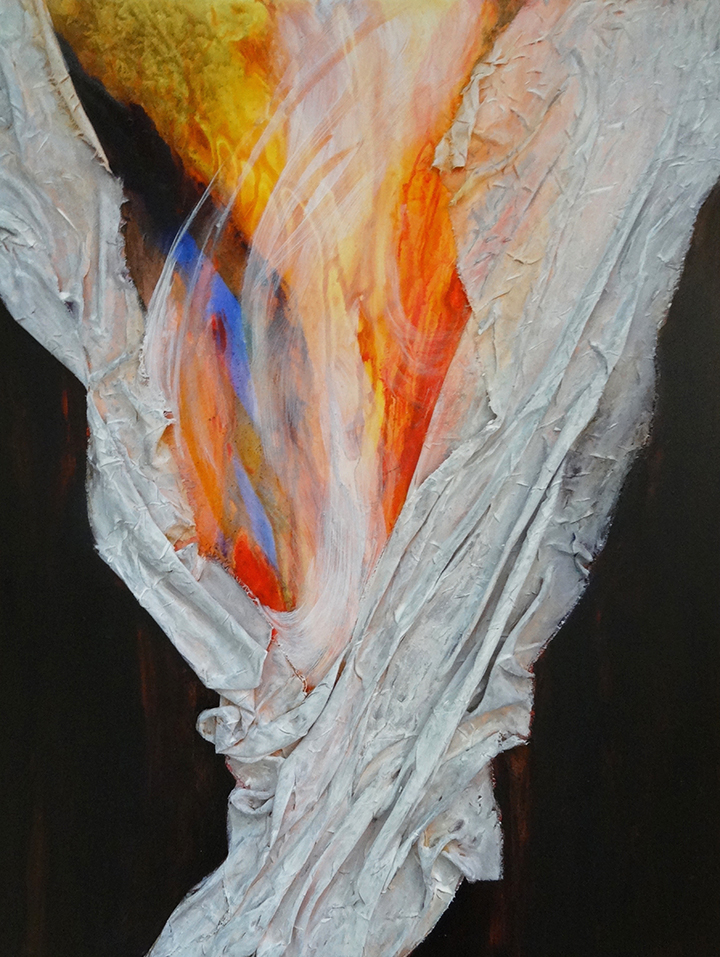
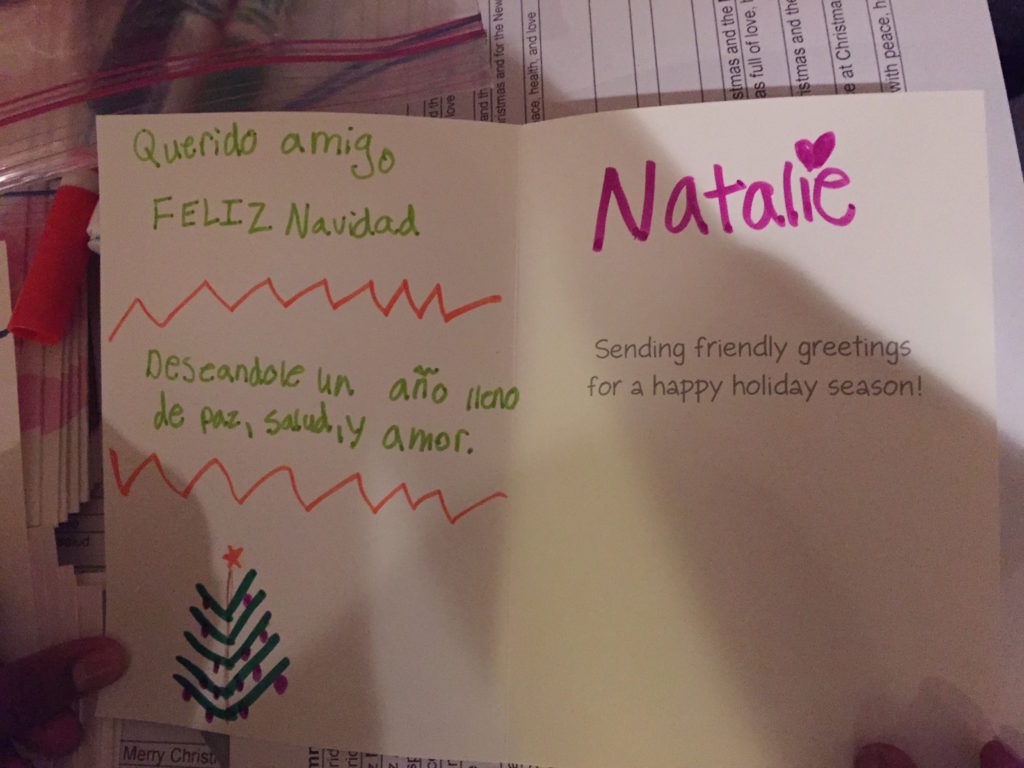 First, we practice Advocacy as offering. We often take a minute during our offering time to speak about the latest updates and action alerts from ELCA Advocacy. We have letters and computers available on site for those who want to write or take 20-30 seconds to fill out the action alerts online and send them at any point throughout our gathering.
First, we practice Advocacy as offering. We often take a minute during our offering time to speak about the latest updates and action alerts from ELCA Advocacy. We have letters and computers available on site for those who want to write or take 20-30 seconds to fill out the action alerts online and send them at any point throughout our gathering.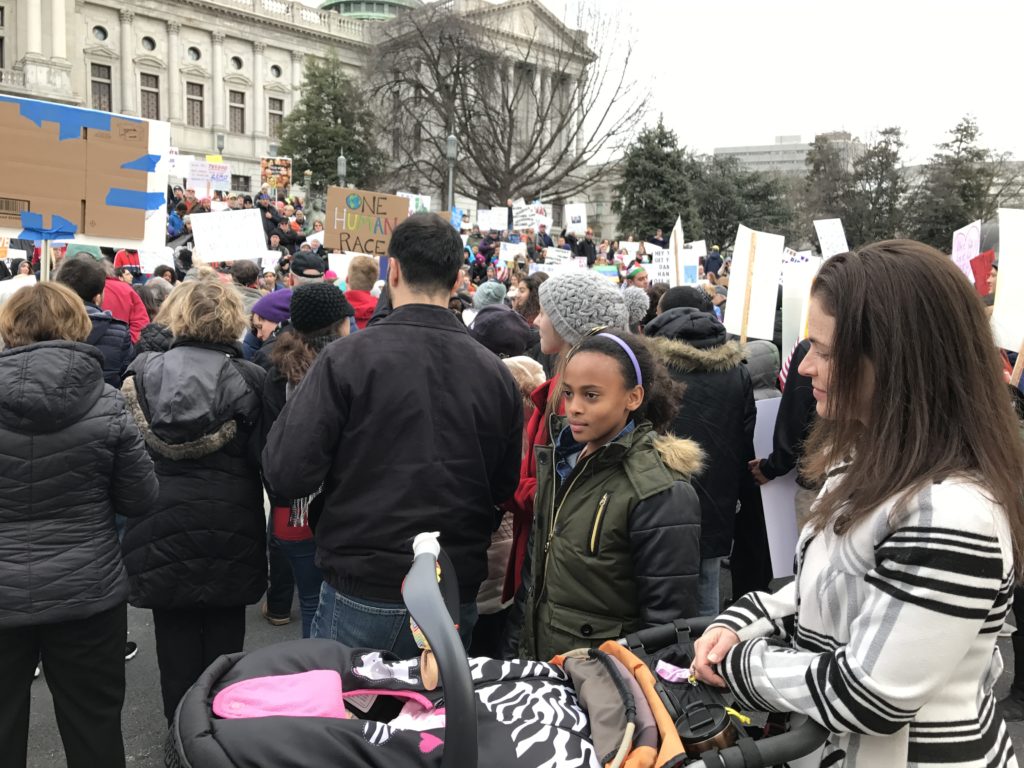 Today, our first gathered missional community has now multiplied into three missional communities that all gather in public places outside of church buildings. Though these communities appear very different from one another, the expressions of these Communities of Hope are similar focusing on advocacy as a means of loving our neighbors.
Today, our first gathered missional community has now multiplied into three missional communities that all gather in public places outside of church buildings. Though these communities appear very different from one another, the expressions of these Communities of Hope are similar focusing on advocacy as a means of loving our neighbors.